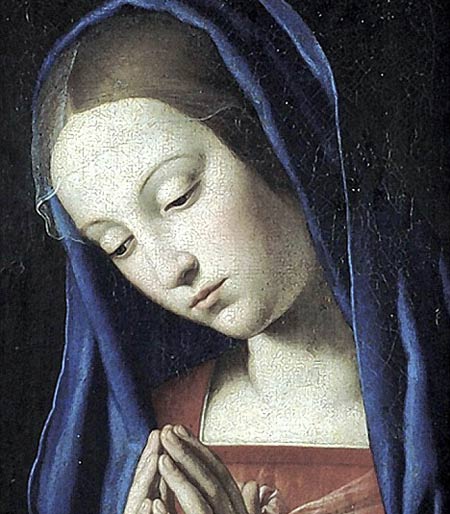
A picture of Mary.(Photo: Daily mail)
For centuries, religious believers have shown that they can tolerate physical pain better than atheists. Now British scientists have discovered the reason why.
This finding explains why in the past centuries, thousands of Christians have always appeared calm when burned on fire.
In an oddly considered experiment, Oxford University, UK experts used electric shocks to " torture " 24 volunteers, including 12 Christians. Volunteers are not informed about the purpose of the test. The team only said that they wanted to assess the pain relief effects of the paintings.
Before and during an electric shock, experts asked a group of volunteers to view a 15th-century picture of Leonardo da Vinci and a painting of the Virgin Mary from the 17th century. The face of the Virgin Mary will have some effect on Christians.

A picture of Mary.(Photo: Daily mail)
The experiment was divided into 4 times and each volunteer suffered 5 shocks in one go. During the " torture " process, experts conducted brain scans by magnetic resonance. Each time, the team must evaluate the pain level on a scale of 0 to 100.
Christians say that looking at the picture of the Virgin makes them feel safe, calm and confident. The assessment of the pain of 12 Christians when looking at the picture of the Virgin is 12% lower than when they looked at Leonardo da Vinci's masterpiece. Magnetic resonance imaging shows the area of the brain that controls the mechanism of pain relief.
However, similar neurological activity does not appear in the atheists' brains. The assessment of their pain level when looking at pictures and when not looking at pictures is the same.
The team thinks that, to some extent, religious believers can overcome physical pain by thinking about it positively. Psychologist Dr. Miguel Farias, a member of the research team, said that atheists could do the same if they were to see the pictures they liked.
"An atheist can overcome physical pain if he sees an image of someone he loves or admires, such as a father, mother, lover or a hero," Miguel said. .